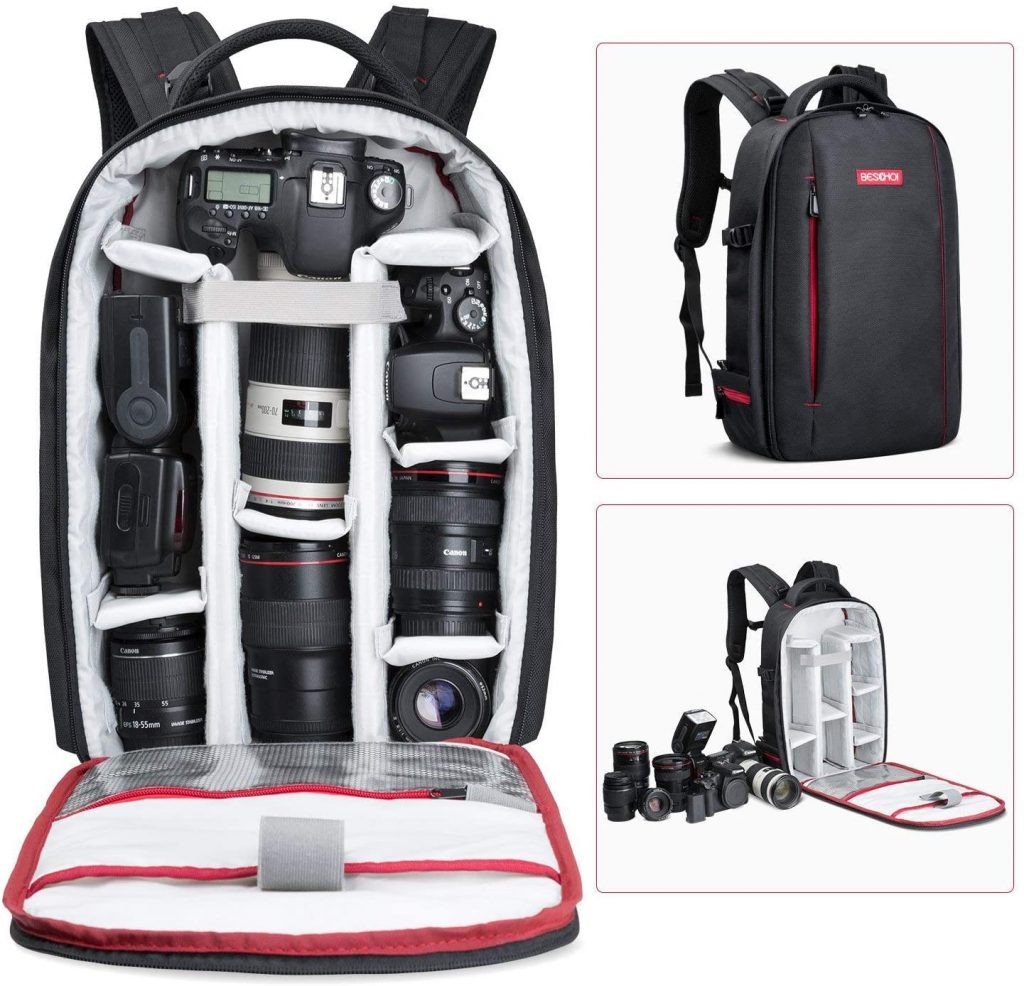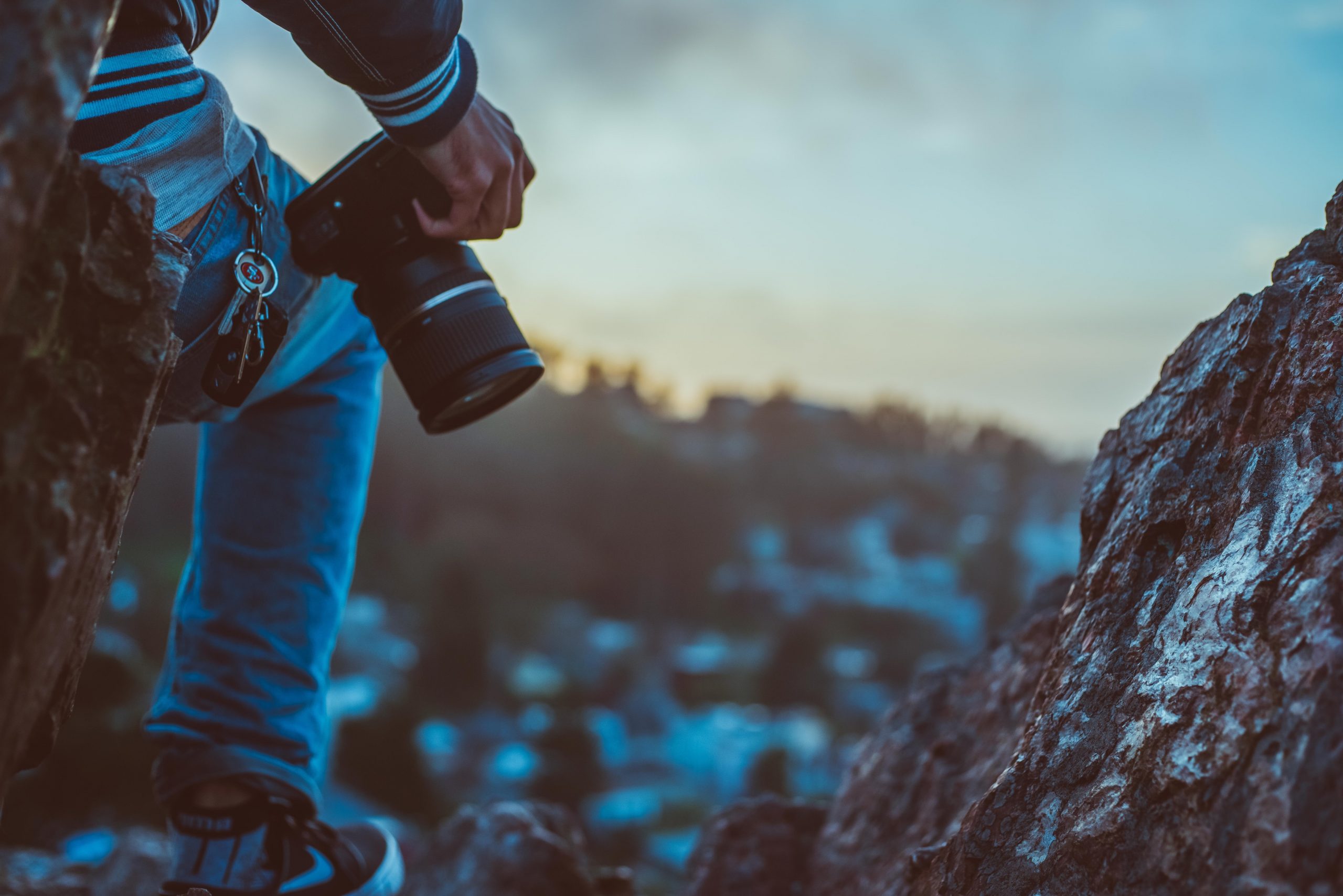It’s probably safe to say you usually pack your bag with essentials before leaving the house: car keys, purse, driver’s license, sunglasses, and a random pen for true emergencies. So it would make sense to do the same with your photography kit before a shoot. After all, it’d be pretty embarrassing if you are going for a Professional photography and you missed the perfect shot because your only battery ran out.
Whether you’re a novice or a seasoned veteran, keeping an inventory of your essential items is always a bright idea. But what counts as essential? Due to the abundance of gadgets available on the market, it can be a real challenge to figure out what you should be buying and what you can avoid.
Luckily, RH Studio, a professional photography studio in Hong Kong, has done all the legwork for you by compiling a list of 11 items they believe every photographer should carry in their kit. With this kind of checklist, you can spend less time editing and more time capturing incredible shots.
Lens Cleaning Kit
Anyone who wears glasses knows they’re a magnet for dust, spots, and smudges. A photographer’s lens is no different and becomes a nightmare to battle with during post-processing. Plenty of amazing photos have been ruined by a stray smudge, even if you swear you didn’t touch the lens. Thankfully, carrying a lens-cleaning kit is a simple fix for this nuisance problem.
The ideal cleaning kit should contain a cleaning solution and lint-free cleaning pads. Additionally, since dust can harm the coating on your lens, it’s best to have a blower brush handy too.
If you don’t want to dig out a cleaning kit from your bag every time you get a dust spot, you could carry a lens pen for small, frequent cleaning. The size of well, a pen, the lens pen comes with an easy to clean brush on one side and a cleaner pad on the other, making it perfect for erasing spots on the go.
Lens Filters
Lens filters can feel a bit like marmalade. Some photographers swear by them, and others feel they aren’t necessary. Regardless, it’s a good idea to have them to hand in case you ever need them. After all, extra protection is hardly a bad thing.
There are three types of lens filters; ultraviolet, polarising, and natural density filters. Each has its advantages, but they all serve to enhance the quality of your images and protect your lens from damage.
Full-Size Tripod
While this item is bulkier than a small cleaning kit, it’s just as important to have one for when it matters most. Impressive photos come from stable cameras, so a collapsible full-size tripod is your new best friend.
If you’re concerned about the weight from carrying the tripod while scoping the best spots for a photo, you’ll want to grab a carbon fibre model. Their lightweight design means you get the same stability and support without the extra bulk.
Before moving on, it’s worth noting that the importance of a tripod can’t be understated. Not only do they provide an even, stable platform for your camera, but they can also support a reflector and external flash. Moreover, since photographers are often lone wolves, the extra pair of hands can be a lifesaver.
Memory Card Reader
Unfortunately, viewing your images on your camera’s display screen won’t always give you an accurate idea of its quality. As well as draining the battery, many subtle points of your photos get missed on such a small screen. As a result, it’s often disappointing coming home to realise the amazing shot you took is subpar when properly sized.
One way to solve this problem is by carrying a memory card reader with you. You can weed out the bad from the good by connecting it to a device with a larger screen.
A Storage Device
Mistakes can and do happen, and while modern tech is very reliable, there’s always the worry of losing your data thanks to a clumsy finger or hardware glitch. Even if you’ve securely stored your images away on a laptop, it should be mandatory to back up your files to be safe.
Another precaution you can take is keeping an external hard drive nearby. Serving as a portable storage device, you can keep your files safe while your laptop or computer is out of reach. Not only that, but you can also create additional space on your camera by transferring the files if you’re getting a bit trigger happy.
Battery pack
Battery packs are perhaps the most important thing to keep handy, especially for lengthier studio or field sessions. The worst scenario for a photographer would be missing out on the perfect shot because they didn’t manage their battery life properly.
To avoid the disappointment of finishing the job early with a dead battery, keep some fully charged backups so you can get back to shooting without interruption. Of course, you’ll find more often than not that you won’t need the extras, but for those times when you do, you’ll be glad they were there.
Spirit Level
Spirit levels are one of the most affordable photo accessories you can purchase. Despite its low price point, it’ll pay for itself many times over by ensuring your landscapes and horizons are perfectly straight, as well as cutting out time spent correcting them afterwards.
Camera Bag

Since the most essential instrument for photography is your camera (obviously), a well-designed and functional camera bag is crucial for safekeeping. Furthermore, since it’ll be used constantly, it needs to be durable while protecting your camera from bumps and knocks.
If you need a camera bag, make sure you get one that’s water-resistant and has layers built-in to protect against impact. Most photographers recommend shoulder bags as they’re portable, compact, and safely strapped to your person to avoid damage.
Proper Lighting Equipment
Lighting can be the difference between an award-winning photo and a missed opportunity. Its elusive nature forces many photographers into studios where they can control and adjust the lighting to suit their needs.
The best thing you can do for the quality of your photos is to invest in professional, high-calibre lighting equipment. Maintaining natural light and its direction is a must for successful images, and skilled photographers will be able to use it to their advantage.
Tools For Editing Photos
Yes, we’re cheating for the following two items as you can’t physically bag them up. Regardless, photographers need to have them in their metaphorical toolkit.
Speaking of tradespeople and toolkits, photographers need their own tools for the various stages of their craft. Not only do you need specific tools for capturing your photos, but you’ll need a different set for editing and publishing them.
One essential instrument needed for photo editing is Photoshop. As far as editing software goes, it can’t be beaten. The process is easy and hassle-free, so it’s easy to understand why photographers swear by it. Additionally, if you’re new to editing software, you’re in luck, as you can learn to use all of its features through online videos and guides.
Website
A website might not be what you were expecting to see in this list but hear us out. Having a photography website has many advantages that you can’t get elsewhere.
While Instagram is an excellent platform for promoting all kinds of professional photography, a website can serve as a direct link between you and potential buyers. It can also showcase your photos in a more appealing and accessible fashion than a social media account. Additionally, it’s easier to build a brand on your website, and with search engine optimization (SEO) techniques, you can set yourself apart from the competition.
If you’ve considered setting up a website, RH Studio, the digital creative studio mentioned previously, offer photography and website design services so even us technophobes can reap the benefits.
Photography is an art form, and having the right tools available will enhance the process and improve the overall finished piece. The items mentioned above will help elevate your work by ensuring you’re always ready when inspiration strikes.
Also Read : Best 3 Websites To Take Raptor Programming Assignment Help

